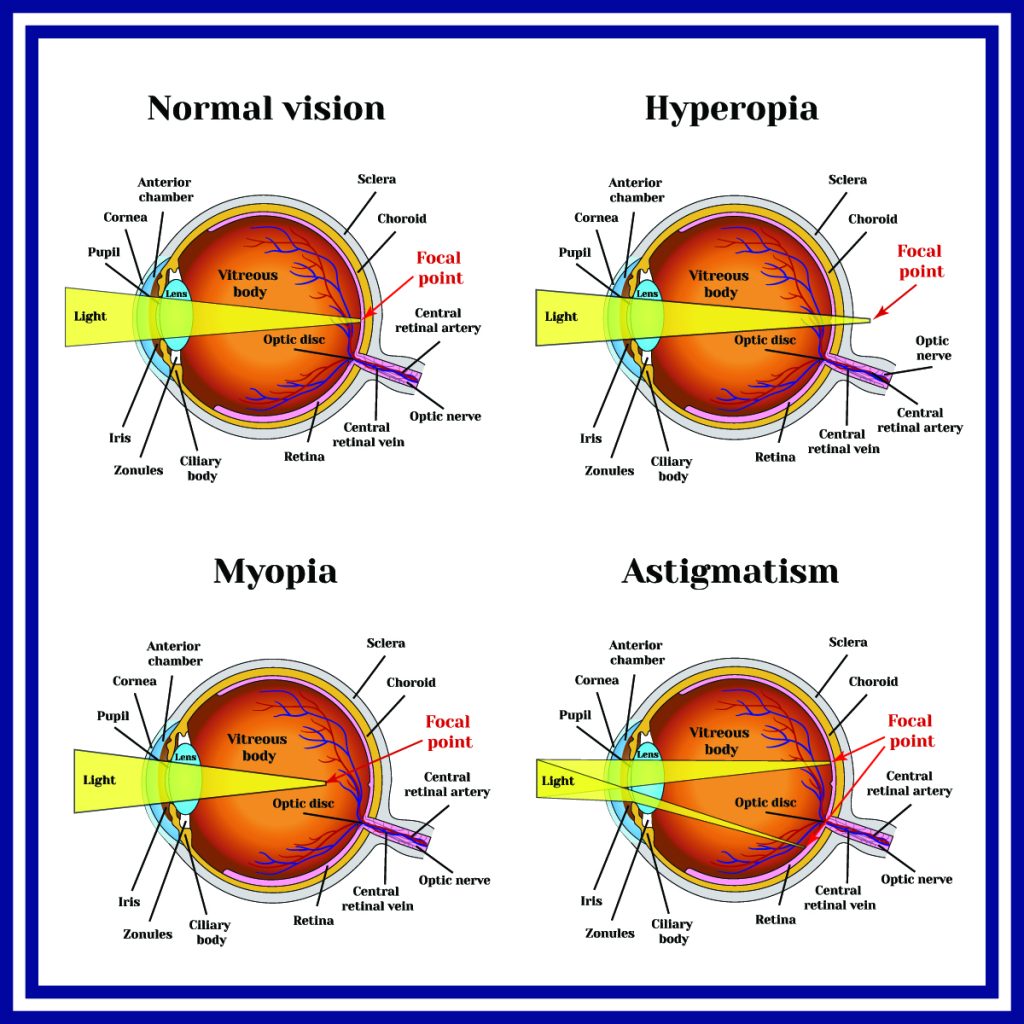Refractive errors cause blurry vision due to a misshapen cornea or hardening eye lens. The cornea and lens work together to refract (bend) light correctly, focusing the light rays onto the retina in the back of the eye. However, refractive errors prevent proper light refraction, causing blurry vision at one or more focal points. More than 150 million people in America live with refractive errors, which often develop in childhood and are hereditary. Corrective eyewear gives you better vision, but LASIK and PRK offer sharp vision reducing or eliminating the need for glasses and contact lenses.
Ernest W. Kornmehl, MD, FACS, is an internationally renowned laser eye surgeon in Boston known for his expertise in refractive surgery. He was named top 1% of ophthalmologists in the United States by U.S. News and World Report and honed his skills at Yale School of Medicine and Harvard Medical School. Dr. Kornmehl has helped countless men and women achieve visual freedom with LASIK and PRK.
Nearsightedness
Myopia, or nearsightedness, makes faraway objects appear blurry. This refractive error happens when the eye is “too long,” or has a steep curvature of the cornea. The light rays passing through the cornea meet at a point before the retina, which distorts the messages sent through the optic nerve to the brain.
Farsightedness
Hyperopic patients can have good distance vision prior to the age of 40. However, when the lens hardens and loses its flexibility, patients will notice reduced distance and near vision. The eyeball is shorter than usual in people with farsightedness, or the cornea is too flat. When light rays pass through the eye structures, they come to a point beyond the retinal tissue, causing blurry vision.
Astigmatism
Astigmatism makes objects at multiple focal points appear blurry or distorted. The eyeball is shaped more oblong (like a football) than round, with mismatched curves that refract multiple points of light on the retina. Horizontal astigmatism happens when the eye is shorter than it is wide, and vertical astigmatism occurs when it is taller than it is wide. Both forms of astigmatism cause blurry near and distant vision due to the irregular shape.
Presbyopia
Presbyopia is an age-related refractive error that often arises around age 40, causing blurry near vision. The natural lens inside your eye works like a camera lens, widening and shrinking to focus light on the retina. As you get older, the eye lens loses its flexibility and hardens, making it difficult to adjust to see objects in front of your face clearly.
Symptoms of Refractive Errors
You may have a type of refractive error if you notice these symptoms:
- Glare
- Halos around lights
- Headaches
- Tired or sore eyes
- Trouble focusing on text when reading or using a screen device
- Double vision
- Hazy eyesight
Many people with blurry vision must squint to see clearly. If you already wear corrective eyewear and experience these symptoms, schedule an eye exam to see if your prescription needs updating.
How to Treat Refractive Errors
Prescription glasses and contact lenses can correct your vision but require daily upkeep. The lenses in your glasses can fog, smudge, or scratch. Contact lenses are uncomfortable or inconvenient for some patients. LASIK and PRK are refractive surgeries that alter the shape of the cornea to correct for nearsightedness, astigmatism, and farsightedness allow uncorrected vision correction and freedom from corrective eyewear. While laser eye surgery won’t address issues with the eye lens, LASIK mini monovision can address presbyopia by correcting one eye for near vision and the other for distance.
Schedule your eye exam and consultation at Kornmehl Laser Eye Associates to discuss your refractive errors and corrective options. Contact our Boston, Massachusetts, office at (877) 870-2010 or fill out our online contact form.
